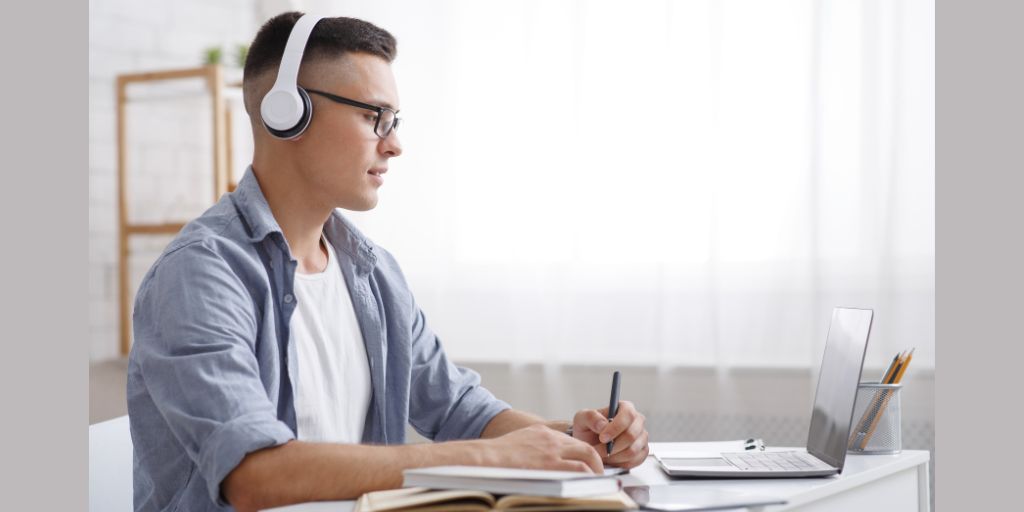
Many educators and parents are recognizing the significant impact of listening skills on academic success. By incorporating specific listening therapy activities, students can enhance their comprehension and engagement, ultimately boosting their academic performance. Engaging in exercises like “Guess the Sound” sharpens students’ ability to focus and dissect audio cues, which is crucial for effective learning.
Active listening activities not only improve comprehension but also create a supportive learning environment. These techniques emphasize attentiveness and empathy, which are vital in classroom settings. Therefore, incorporating these techniques from a comprehensive guide on listening therapy from Soundsory or any other resources can further aid in addressing auditory processing disorders and other learning difficulties.
By integrating these therapeutic activities and approaches into educational curriculums, students are likely to see noticeable improvements in participation and academic outcomes. Keep in mind that this article is meant for informational purposes, if you have any medical concerns, please consult a medical professional for further guidance.
Key Takeaways
- Listening activities enhance academic performance.
- Supportive environments foster better listening and comprehension.
- Guide on listening therapy from Soundsory offers valuable resources.
Developing Core Listening Skills for Academic Enhancement
Enhancing listening skills plays a vital role in academic achievement. Key strategies include active listening, maintaining eye contact, and incorporating effective communication techniques.
Understanding the Fundamentals of Active Listening
Active listening involves fully engaging with the speaker and the material being communicated. This entails maintaining eye contact, using appropriate body language, and showing interest through verbal affirmations or nodding.
Active listening is crucial for understanding instructions, retaining information, and participating effectively in classroom discussions. It helps in focusing on the content, minimizing distractions, and improving communication and collaboration with peers and teachers.
Active listening skills can significantly improve academic performance by fostering better comprehension and retention of material.
Techniques to Improve Listening Skills
Several techniques can boost listening skills, making learning more effective. One approach is summarizing what has been heard, either verbally or through note-taking. This reinforces understanding and memory of the material.
Maintaining eye contact and being mindful of body language can demonstrate attentiveness and encourage the speaker. Minimizing distractions by finding a quiet place to study or focus can also be helpful.
Engaging in participation through questions and discussions enhances understanding and keeps the listener engaged. Practicing these techniques regularly can turn them into habits, greatly benefiting academic performance.
Integrating Listening Strategies Into the Classroom
Integrating listening strategies into the classroom can create a more dynamic and engaging learning environment. Teachers can incorporate active listening exercises, such as group discussions or role-playing activities that require students to listen and respond thoughtfully.
Encouraging note-taking during lectures helps students to process and retain information. Setting goals for improving listening skills and regularly reflecting on progress can motivate students to remain aware of their listening habits.
Teachers should also create an atmosphere that minimizes distractions and encourages focus, which is essential for developing strong listening skills. These strategies can make a significant difference in students’ academic journeys by enhancing their ability to absorb and process information effectively.
Cultivating a Supportive Learning Environment
Creating a supportive learning environment involves employing interactive activities and technology, enhancing comprehension through emotional intelligence, and improving engagement and retention in high school students. Feedback and reflection are essential tools for tracking learning progress.
Employing Interactive Activities and Technology
Incorporating interactive activities and technology within classrooms can significantly boost student engagement and comprehension. Utilizing tools such as online platforms and multimedia resources helps cater to various learning styles. Activities like group discussions, problem-solving tasks, and use of visual aids stimulate active participation. Technology can provide immediate feedback, enabling students to ask clarifying questions and grasp complex concepts. Integrating these elements enhances both skills and comprehension, leading to improved academic performance.
Enhancing Comprehension Through Emotional Intelligence
Developing emotional intelligence is crucial for fostering a supportive learning environment. Skills such as empathy, understanding, and recognizing facial expressions can enhance classroom relationships. Teachers can model and teach these skills to help students develop strong social-emotional attributes. These attributes aid in building trust and rapport among students and instructors. This environment encourages open communication and emotional sharing, which is essential for enhanced comprehension and active participation in academic activities.
Improving Engagement and Retention in High School Students
High school students particularly benefit from strategies that improve classroom engagement and information retention. Incorporating interactive activities and fostering an atmosphere that emphasizes active listening can significantly boost their engagement. Using technology to present information in diverse formats, such as videos, infographics, and interactive simulations, can aid retention. Social-emotional development activities that focus on trust and understanding also contribute to creating an engaging learning environment. Through these methods, high school students can improve their problem-solving skills and comprehension levels.
Feedback and Reflection: Essential Tools for Learning Progress
Regular feedback and opportunities for reflection are critical components in a supportive learning environment. Constructive feedback helps students understand their strengths and areas requiring improvement. Reflection sessions allow students to think critically about their learning experiences, foster self-awareness, and set goals for future improvement. Incorporating feedback and reflection into the classroom routine enhances accountability and encourages continuous learning. This practice not only supports academic growth but also cultivates a lifelong learning mindset among students.
Conclusion
Listening therapy activities can significantly enhance students’ academic performance by boosting their comprehension and engagement in the classroom. Techniques like active listening, using cognitive strategies, and engaging with educational content through varied mediums have shown positive results. Incorporating such practices into daily routines fosters a better learning environment and improves overall academic achievement.












